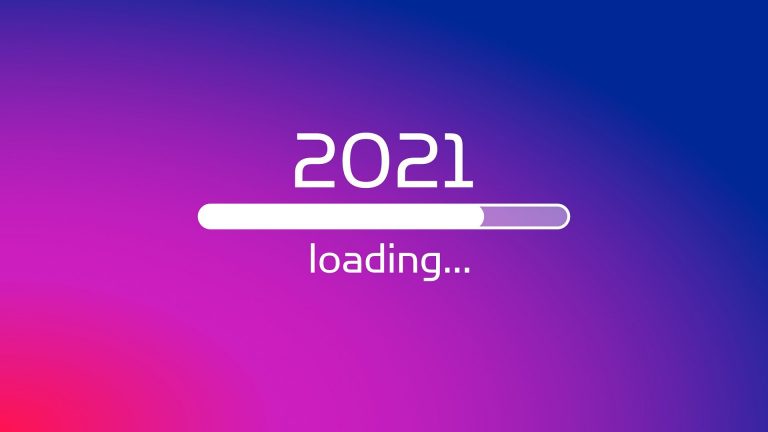I’m an engineer and I need to perform in front of people. What to do?
If you’re a successful engineer or developer, at some point in your career you’ll have to step onto the scene, so to speak. And not in front of friendly-minded colleagues who came to hear about some framework. And in front of “decision makers” who can greatly influence, for example, your future career. In this post, we share the experience of Neil Thompson, creator of Teachthegeek.com public speaking courses. The path to his own project and fame as a speaker, Neil began as an ordinary engineer – and in the InfoQ podcast, he told what helped him to develop.

I became an engineer because my father advised me to. I never thought that I would be doing this. At school, I did well in math and science. My father asked why I shouldn’t become an engineer, and I agreed.
Previously, I hid this reason, it seemed to me something shameful. Usually everyone has a cool story about some school robotics club or about the Lego hobby. Designers did not interest me, and there was no mug with robots at my school. At first, the father offered to graduate from school with this specialty. Then get higher education. And finally, on his own advice, I went to get a Ph.D. in materials engineering.
Then I was 24 years old. At some point in life, everyone begins to make decisions on their own, and around this time, such a moment came for me. I did not imagine myself a doctor of sciences, I dropped out after a year. Then, while I was looking for a job for seven months, I had to live with my father. He probably wasn’t happy about it.
At my first job, I tried to figure out how things work in the industry and in general in this world. At my second job, I was assigned as a project lead. My company was too poor to hire full-fledged project managers, and they put all the responsibility on the engineers. So every month we, the project leaders, presented presentations about our work to top management – CEO, COO, CTO and other “C”.
Fear of public speaking
The first two presentations terrified me. I didn’t know the human body was capable of producing so much sweat. It was as if I were covered in water—not a pleasant feeling. I did not want to repeat this experience, so I decided that it was worth developing the skill of presentations, especially in front of people who are not as technically savvy as me. In addition, the project that I represented then, the company eventually closed. Now I think that perhaps if I had performed better, the project would not have been closed. I still think about it even though it’s been 13 years.
I developed my presentation skills and ended up joining Toastmasters, an international organization that helps people develop their public speaking skills. I began to consciously look for opportunities for public speaking. I summarized all my knowledge on the topic in the Teach the Geek to Speak course. So I got a huge opportunity to hone my skills. Every month I speak to the course community, give consultations, and solve their problems with other technical specialists.
Even if your fear of public speaking is stronger than your fear of death, first of all ask yourself: “Why do I need to upgrade my public speaking skills?”. I quickly realized that such people are moving up the career ladder at least faster than others. No matter how incredible expertise you have, no one will know about it until you learn how to communicate with people. Keep this thought in mind and it will help you overcome your fear.
Connect with people and tell them stories
First you need to identify potential viewers and their level of knowledge. If you are a software architect and you are talking about software architecture with non-architects, it is important to understand what they know about the topic. Are they completely new? Or maybe they are more advanced than you think? For beginners, use less technical jargon and more general vocabulary.
Editor’s note: The original “meet people” is “meet people where they are”, literally “meet people where they are”. It is easy to think that we are talking about a physical location. No, you don’t have to bore anyone at the coffee machine break or drag out phone calls with personal stories. It is about the level of knowledge, about expertise.
I remember in my second job, when I was presenting updates on the project, I had to interact with a group of orthobiologists. If I now continue to delve into orthobiology, you are unlikely to understand what I am talking about at all. Orthobiology deals with implants made from human bone tissue. My company, in particular, made such implants for the spine. If I had continued to simply call everyone orthobiologists, I would hardly have kept my interest. So I use words that everyone understands: it’s about bone implants.
The second important point is storytelling. I never realized how important it was in presentations until I thought about it and heard other people doing technical presentations using storytelling. I thought it wasn’t worth it to bully stories at a tech presentation; it is important to focus on data and facts. But if you’re working with an audience, especially non-technical audiences, storytelling is very important. It is already difficult for them to think at your level of expertise – so try to at least wrap your knowledge into something more understandable so that the audience can still climb to this peak. The word “orthobiologist” could easily turn off your attention, so I immediately explained it in understandable language.
Editor’s Note: To understand how storytelling works, you can read “Million dollar story» Robert McKee. And to get inspired by the magic of storytelling, check out “Barton Finkby the Coen brothers.
Let me summarize this point. Know who you are working with and what level of expertise they have. If necessary, use common vocabulary so that you are more likely to be heard. And finally, use storytelling.

Interact with your audience
When your interaction with the audience is one-way, you should stick to the principle of “less is more”. I went to conferences as a spectator a lot when I was an engineer. It is difficult to maintain concentration and desire to sit ass if you are not accompanied by a cup of coffee or an energy drink in the audience.
Therein lies another big problem. Many technical professionals, especially executives, simply read from slides during a presentation. They don’t even look at the audience. It feels like they’re giving a presentation just to mentally tick the box. “I’ll give a presentation” instead of “Wow, I’m going to really captivate people and they’ll learn something they didn’t know before!”. If you look at the slides and not at the audience, then you are likely to lose contact with the audience.
When I talk about professional topics, I try to keep my slides as few words as possible. I also really like to replace text with pictures – it saves viewers from having to read. As a result, they are left with a simple choice: either listen to you or ignore you. Yes, and you have the number of scenarios reduced to two: you look either at the audience or at your shoes.
Pictures should be chosen so that they are connected with the story. This will help to remember the necessary theses. Of course, if there are no words on the slides, it can be difficult to give a presentation. Especially if you are used to reading whole sentences and only then turning around to the audience. But, as I said, this tactic is dangerous: you can lose contact with the audience.
Another important tip. If you have charts or tables on your slide, add a title to them that clearly states what you want to convey with the charts and tables. It is not necessary to strain the listeners too much so that they understand the meaning of all these lines and numbers. Just write what you want to convey to them; this will be very helpful, especially for non-technical audiences.
Participate in panel discussions
For speakers, this format can be difficult, especially if there is a strictly allotted time for each panelist. You must fit your abstracts into a strictly allotted space so that colleagues have enough time. If possible, find out about the topic of the panel discussion in advance so that you can pre-prepare the stories so as not to linger on the discussion.
As I mentioned above, the ability to express an idea in a minimum number of words is very important. For me, for example, it always came easily, and I didn’t even think about how important it was until they began to talk about my performances as laconic. I like it when I can fit as much meaning into as few words as possible. The more you say, the more the audience will have to think.
I remember well how I read technical literature at school and university. The longer the sentence, the more difficult it is to understand what it means. Even if you just break such a sentence into two parts, it becomes much easier to comprehend the meaning. So if you are participating in a panel discussion, try to be friendly and concise so that others have time to answer questions as well. And probably other participants will answer you the same.
From the editor. Spoken language should, in principle, be easier than written language. If possible, avoid participial and participle turns, ornate complex structures. Try not to put dependent members of the sentence far from their main words. This may be appropriate in writing, but the focus of attention is much narrower for listeners than for readers.
Argument and convince, not just talk
Try to tie your numbers and facts to the justification of some thesis, and not just sprinkle knowledge. Preferably with storytelling.
I will return to the project that was canceled 13 years ago, as it seems to me, through my fault. Yes, the reason was, most likely, my lack of persuasiveness. “Why should we allocate more money to the project?”. Why do you need more people? I didn’t have answers to these questions. I was just reading the slides, sweating and trying to get away as quickly as possible. But I never succeeded. At the end of the presentation, I received questions that I already seemed to have answered during the presentation, got lost and sweated even more.
When you convince people of something, they want to know what other options they have. But at the same time, they are very interested in which of the options is the best (yes, yours, of course). In my experience, storytelling can help a lot here.
From the editor. Remaining part podcast dedicated to the projects of Neil Thompson – public speaking courses and children’s books. The topic of oratory is very popular in Western sources, it has been studied at different levels. If you are interested in learning more about it, leave a comment on this post and we will continue in future publications.




